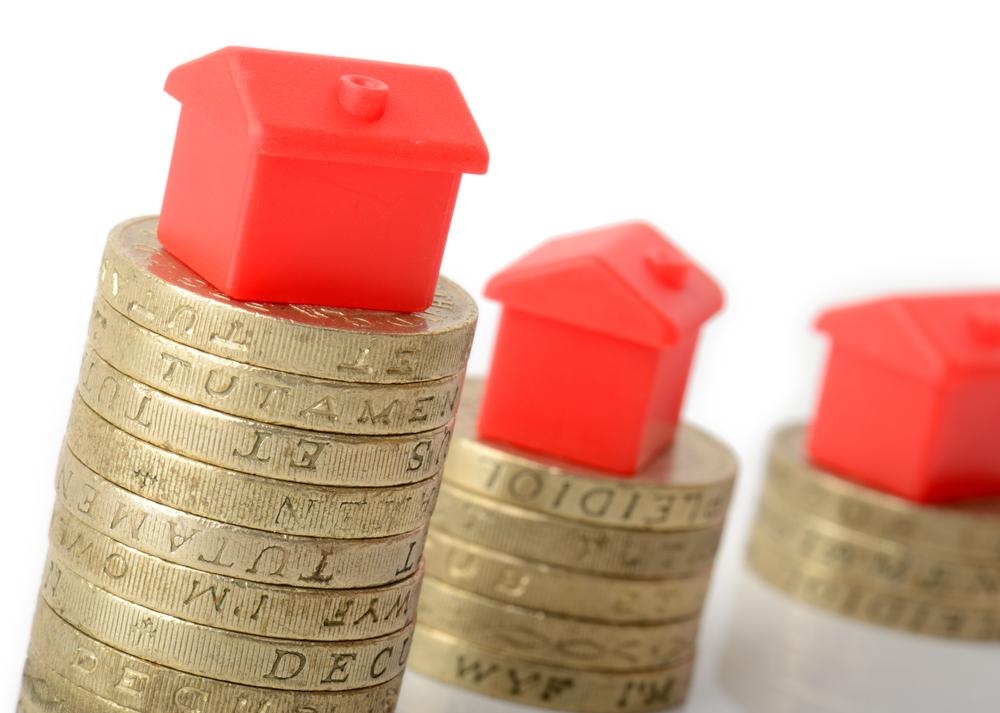The housing market is continuing to slow, with average prices falling by £1,000 in the past month. According to the latest data from the Office for National Statistics, on a monthly basis house prices fell 0.6% to £216,000 in March. There was also a fall in the annual growth rate, with average house prices in […]
 The housing market is continuing to slow, with average prices falling by £1,000 in the past month.
The housing market is continuing to slow, with average prices falling by £1,000 in the past month.
According to the latest data from the Office for National Statistics, on a monthly basis house prices fell 0.6% to £216,000 in March.
There was also a fall in the annual growth rate, with average house prices in the UK going up by 4.1% in the year to March, down from 5.6% the previous month.
This continues the general slowdown in the annual growth rate seen since mid-2016.
The main contribution to the increase in UK house prices came from England, where house prices increased by 4.4% to £233,000 over the year.
Wales saw house prices increase by 4.3% over the last 12 months to stand at £148,000. In Scotland, the average price increased by 0.7% over the year to stand at £137,000. The average price in Northern Ireland currently stands at £124,000, an annual increase of 4.3% .
The East of England and the East Midlands both showed the highest annual growth, with prices increasing by 6.7%. This was followed by the West Midlands at 6.5%.
The lowest annual growth was in the North East, where prices decreased by 0.4% over the year, followed by London at 1.5%.
On a regional basis, London continues to be the region with the highest average house price at £472,000, followed by the South East and the East of England, which stand at £312,000 and £277,000, respectively. The lowest average price continues to be in the North East at £122,000.
Jeff Knight, director of marketing at Foundation Home Loans, said: “With less than a month to go, attention is laser focused on the newest promises from the main political parties to tackle the continued lack of housing supply. Meanwhile, although we’ve seen a slight levelling off in price growth today – a positive in the short term – that’s not what is happening if we look at the detail.
“We can expect to see an upward trend in the long term, dangling home ownership just out of reach despite low interest rates boosting mortgage affordability.”
The figures add to the mounting collection of data which points to the housing market becoming increasingly affected by the growing squeeze on consumers.
“We suspect markedly weakening consumer fundamentals, likely mounting caution over making major spending decisions, and elevated house price to earnings ratios will weigh down further on housing market activity and house prices over the coming months,” said Howard Archer, chief economist at IHS Global Insight.
Nationwide reported that house prices fell 0.4% in April, the first time house prices have fallen in consecutive months for nearly five years.
Mortgage approvals also fell to a six-month low in March, a sign homebuyers are becoming increasingly cautious as they start to feel the pressure on their finances following last year’s Brexit vote.
Figures from the Bank of England showed the total number of mortgages approved fell by over 2,000 to 122,918. It is the second month in a row mortgage approvals have fallen.
The Royal Institution of Chartered Surveyors reported in its April survey that momentum in the housing market is continuing to ebb, with sales declining slightly over the month and new buyer enquiries series edging lower.
RICS said that a lack of choice, uncertainty due to the election and the ramifications of stamp duty changes as factors hampering activity in the housing market.
Andy Sommerville, director at Search Acumen, said: “The easing of house price growth will continue to be welcome news to prospective homebuyers, yet the UK government cannot rely on a sluggish market to bring this relief. It is encouraging to see that the issue of housing has come to the fore in this year’s election campaign with the Conservatives promising a “new generation” of social housing and Labour pledging to build one million new homes.
“Policies directly tackling the critical issue of housing supply will offer sustainable solutions to further reduce house prices, making the dream of home ownership more attainable for many in the UK. But the question remains, can any party deliver such unprecedented increases in housebuilding?”
What Mortgage has teamed up with London & Country to offer you expert advice on the right mortgage deal.
Whether you’re buying a new home, remortgaging to a new deal or buying an investment property, L&C can help – and you’ll pay no fee for their advice. To find out more, click here.














